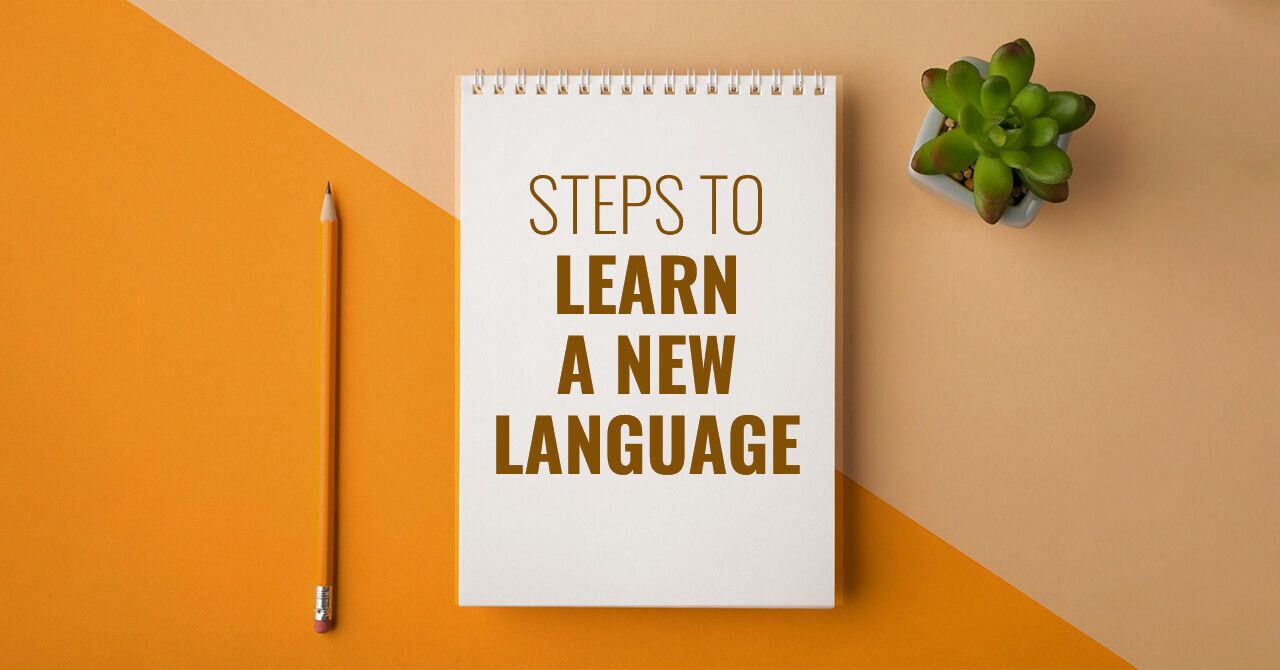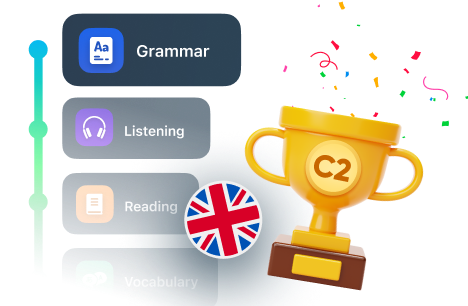
What is the First Step in Learning a Language?
When the desire and drive to learn a language arises, we often don’t know where to start and how to focus. This step-by-step guide will help you overcome the unknown in a simple and practical way.
When the desire and drive to learn a language arises, we often don’t know where to start and how to focus. There are many ways to learn a new language, but it is important to find your own way of learning. This step-by-step guide will help you overcome the unknown in a simple and practical way.
Steps to Learn a New Language
Before You Begin
Right now, you know why you need and want to learn that language, but circumstances change constantly, and so does your motivation. Stay motivated and focused as you work through the learning process.
This step is paramount because, at some point, you’ll be overwhelmed by the number of resources and the amount of work in front of you. Over time, you’ll be more aware of what you don’t know. You might feel like it would take you years to start talking confidently. You might quit. And we don’t want that to happen, right?
To avoid that, set specific, achievable goals for yourself. For example, you might aim to have a basic conversation in the language within a few months or to be able to read and write in the language within a year.
Find Resources
We live in a fabulous century when you can choose the resources that fit your learning style. There are so many different apps, video courses, podcasts, and, of course, good old textbooks—which are still unmatched if you’re serious about language learning.
Start with the most highly acclaimed resources you can find, and combine a few of them. For example, use an app to memorize words, a podcast or video material to listen to the language, a grammar book to grasp the basic rules, and a textbook to take a more systematic approach.
Get Started
Let’s start with the basics! First, it is necessary to focus on the basics of the language, essential grammar rules, everyday communication, and the construction of linguistic constructs such as words, phrases, and sentences.
What are the most common phrases, words, or sentences you use in your native language daily? Use them as a tool to begin your adventure in discovering and exploring a new language. Start with simple things, numbers, seasons, greetings, introductions... all of which may seem way too easy and cliché to start with, but once you have the basics, you can go further.
Repetition is the Mother of Learning
There is a famous phrase in Latin, which says “repetitio est mater studiorum”—repetition is the mother of learning. Repeating is a good method because it requires that information from short-term memory be sent to long-term memory, allowing you to say the words you want to say in a foreign language without much hesitation.
Think about a young child’s approach to learning a language. The way children ask questions and repeat the phrases and sentences they hear from us is a very useful component in language learning. And who says grown-ups can’t use the same trick to internalize language basics?
Immerse in the Language as Much as You Can
While you likely won’t move to the country where they speak the language you’re trying to learn, you can expose yourself to all kinds of content in that language.
Watch movies and series, read books and blogs, and listen to a podcast that explores the topic that interest you. You don’t need to bother with uninteresting stuff. Consume the same kind of content you would otherwise consume. Just make sure it’s in the language you’re learning.
It is Time to Add a Little Bit of Grammar
Once you have mastered the basics, such as numbers, simple words, some basic phrases, greetings, seasons, etc., it is time to start learning grammar. The best way to start is with the basic tenses, like the perfect, present, and future tenses. Don’t go beyond that for now. When you learn grammar, learn it little by little, but do it thoroughly. Unfortunately, this part is a bit more boring, but it is certainly needed.
When you have mastered these three main tenses, the basic tenses of a language, you can move on to more complex things slowly. I suggest you find some children’s books, the A1 ones, and read as much as you can. Over time, you will realize that you can easily distinguish, recognize and absorb everything you didn’t know because you have laid an excellent foundation for your language training.
Speak
It is not necessary to know all the grammatical categories to master the language, but it is very important to repeat and imitate some phrases, sentences, and expressions while listening to native speakers. If you find it easier, try to learn whole sentences like “It was nice outside today.” Learn word by word and try to understand the construction. Every language has a specific way of forming words, phrases, and sentences.
Talk to yourself while making lunch or say in the language you are learning, “I need a spoon...or...I will add two spoons of sugar..or...I like tea.” This way, words naturally become easier to use. For everything you’ve learned, try to create a sentence in your head every day.
Get Support
Even if you’re an introvert like me and love to study in the comfort of your home, at your pace, and you feel you’re able to create a great study plan and stick to it, you’re going to need some help for this. It’s not that language learning is harder than other things you have learned; it’s different. Language is a communication tool. You need other people to use the language, and you certainly need others to learn it.
If someone in your community speaks that language, have a coffee with them more often. If not, find a teacher. While local language courses can be pricey, you get much better help online. Explore the vast number of online language teachers and book trial sessions with some of them. You’ll quickly find someone whose teaching method matches your personality, and your knowledge of the language will expand faster than you imagined.
LiveXP offers more than 2,000 tutors in different languages for 1-on-1 lessons online. You can choose any available teachers at LiveXP to have a trial lesson. With a subscription, you get access to every language and tutor on the platform. Why is private tutoring the best method for learning a new language? You will not be able to learn a language from scratch by yourself. There are grammatical nuances, rules, and exceptions, words meaning that only a teacher can help you to understand. Try LiveXP to learn a language.
Make Mistakes
No one is born a scientist. Make mistakes, and don’t let anything stop you from learning. Because often, if we don’t allow ourselves to try and make mistakes, we quickly forget what we have learned.
Language, like all other skills, takes time, so take all the time you need. And remember—for everything we do in life, it is important to have order, work, and discipline. So be diligent.


















